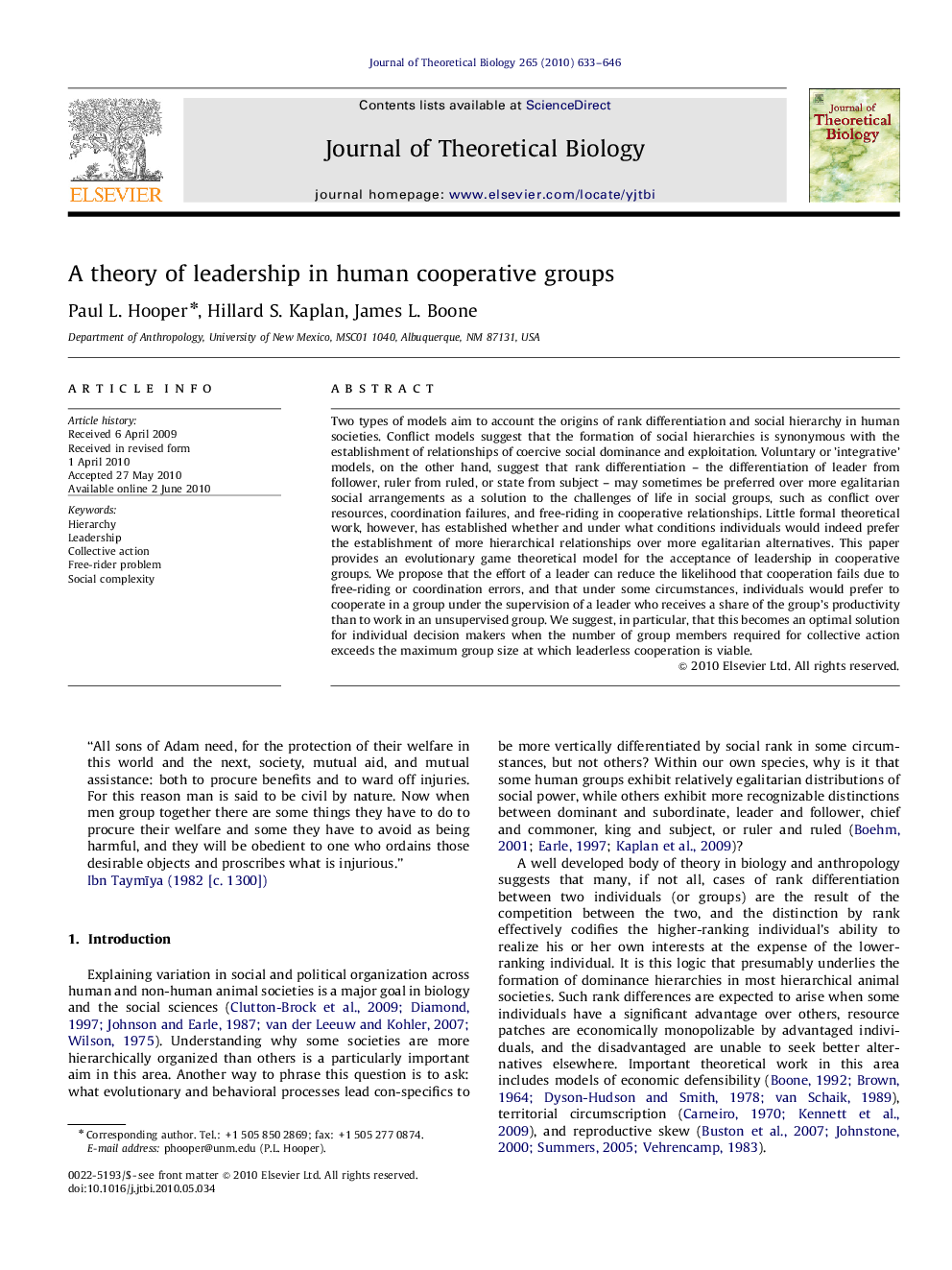| کد مقاله | کد نشریه | سال انتشار | مقاله انگلیسی | نسخه تمام متن |
|---|---|---|---|---|
| 4497467 | 1318935 | 2010 | 14 صفحه PDF | دانلود رایگان |

Two types of models aim to account the origins of rank differentiation and social hierarchy in human societies. Conflict models suggest that the formation of social hierarchies is synonymous with the establishment of relationships of coercive social dominance and exploitation. Voluntary or 'integrative' models, on the other hand, suggest that rank differentiation – the differentiation of leader from follower, ruler from ruled, or state from subject – may sometimes be preferred over more egalitarian social arrangements as a solution to the challenges of life in social groups, such as conflict over resources, coordination failures, and free-riding in cooperative relationships. Little formal theoretical work, however, has established whether and under what conditions individuals would indeed prefer the establishment of more hierarchical relationships over more egalitarian alternatives. This paper provides an evolutionary game theoretical model for the acceptance of leadership in cooperative groups. We propose that the effort of a leader can reduce the likelihood that cooperation fails due to free-riding or coordination errors, and that under some circumstances, individuals would prefer to cooperate in a group under the supervision of a leader who receives a share of the group's productivity than to work in an unsupervised group. We suggest, in particular, that this becomes an optimal solution for individual decision makers when the number of group members required for collective action exceeds the maximum group size at which leaderless cooperation is viable.
Journal: Journal of Theoretical Biology - Volume 265, Issue 4, 21 August 2010, Pages 633–646